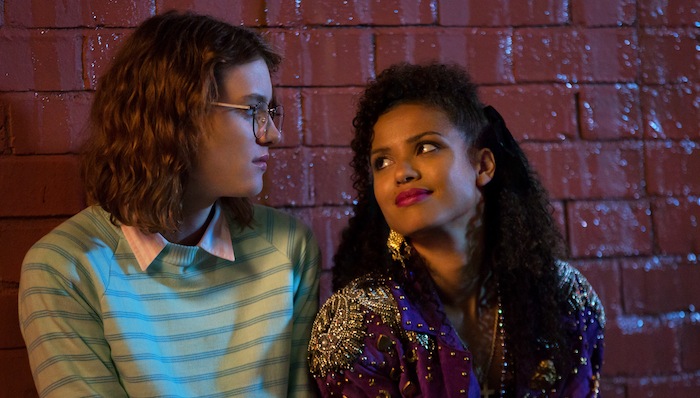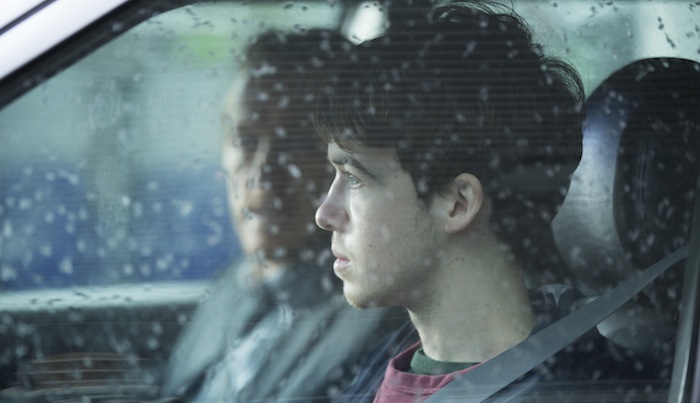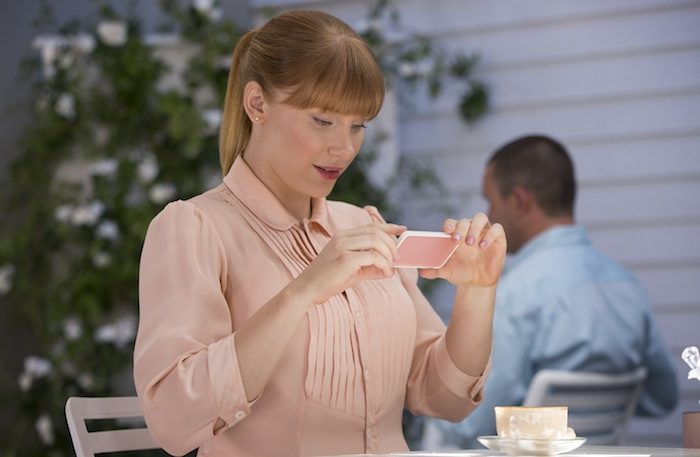First look Netflix UK TV review: Black Mirror Season 3
Review Overview
Uncomfortable truths
8Unexpected plot twists
7Unflinching ambition
9David Farnor | On 16, Oct 2016
This review is spoiler-free. For in-depth looks at each episode in Black Mirror’s Season 3, click here.
“We’re all so caught up in our own heads, it’s easy to lose sight of what’s real.”
That’s Lacie (Bryce Dallas Howard) talking in Season 3 of Black Mirror, Charlie Brooker’s dystopian anthology series. Now upgraded from Channel 4 to Netflix, the show returns with twice the usual number of episodes – and double the ambition.
Black Mirror has always been creepily good at tapping into our underlying distrust of technology. The show specialises in taking abstract concepts, such as blocking, liking, spying and trolling, and dragging them into our literal reality, to harrowing, disturbing effect. Releasing all six new episodes at once on a streaming service, then, is oddly fitting.
In this warped vision of our society, the problem is less the technology and more the people using it. The ability to watch all of our memories on-demand via a video chip in our brain only brings out our natural jealousy. The chance to recreate a deceased loved one from their social media profiles only highlights how little of our real lives we put online. And in the face of voyeuristic reality TV and virtual politicians, concepts such as democracy and justice collapse all too plausibly.
Read: 10 lessons we learned from Black Mirror
Season 3 retains that basic premise, but mines it for richer, deeper results. The precisely thought-out scripts are present, but the visuals feel even more cinematic (Be Right Back’s Owen Harris returns to helm an episode). The characters are immediately recognisable, but the cast is packed with A-list stars. The ugly perils of computing are still there, but in Black Mirror 3.0, there is also room for humour, heart and (whisper it) perhaps even hope.
The new run opens with one of the show’s strongest episodes to date: Nosedive, a glorious satire on our rating-obsessed culture. The very idea is straight out of the Black Mirror playbook: what if everyone had their own rating, voted for by other people and always on display? Like Uber, but with humans instead of cars.
Lacie leads us into that world, a woman who’s a solid 4 out of 5, but desperately wants to climb into the exclusive 4.5-and-up bracket of “influencers”. And so she, like most people, runs around with a constant smile on her face, trying to be ultra-polite, posting perfect pictures of carefully groomed coffee and biscuits on the web. All of it is designed to get positive social media feedback, boosting her life score.
Brooker’s spoken before about the gamification of platforms such as Twitter, which we treat as something we have to win. Writers Rashida Jones and Michael Schur manage to capture all of that craving for approval and create a world out of it with the bare minimum of exposition – and director Joe Wright brings it to life with the glossy sheen and pastel colours of the most hipster Instagram account imaginable.
Bryce Dallas Howard is an ideal fit, her strained mask of happiness perpetually on the brink of snapping into a tirade of truth. She’s pushed nearer and nearer the edge by an old friend (played by the perfectly chosen Alice Eve), whose life appears to be flawless. The result is bleak and scarily close to the present day, but it’s also lighter than Black Mirror’s usual stories – and not just visually. Perhaps the first time Black Mirror has been laugh-out-loud funny throughout, Nosedive is a disturbingly hilarious statement of intent: that the show only plans to climb higher.

Photo: David Dettmann / Netflix
That’s particularly apparent in Episode 4, San Junipero, which marks another first for Black Mirror: a period tale. Set mostly in the 1980s, we see Yorkie (Mackenzie Davis) venture into a nightclub in the titular dreamy resort – a club full of cutting-edge arcade machines, people dancing and, in the middle of it all, Kelly (Gugu Mbatha-Raw). Attraction blossoms, drinks flow, Heaven is a Place on Earth booms out over the speakers – but like a bespectacled, awkward Cinderella, Yorkie can’t stay for long.
Davis, who should be a household name after Halt and Catch Fire, and Mbatha-Raw, who delivers a star-making turn in a career full of star-making turns, click beautifully together. While the plot is more predictable and uneven than the show’s other episodes, the duo’s interactions build to a genuinely moving, romantic climax – a remarkable achievement for a show that began with the Prime Minister porking a pig.
But while Harris’ neon-laced visuals are gorgeous to behold, don’t you dare think Black Mirror has gone soft. That’s made all too clear by Episode 3, Shut Up and Dance. A slight, but gripping thriller driven by the universal fear of your browser history being found out, it’s a nail-biting ride that doesn’t let up for nearly an hour.
Alex Lawther (who impressed as a young Alan Turing in The Imitation Game) plays Kenny, a 19-year-old waiter whose laptop gets infected by malware – but the antivirus software he installs only makes things worse. Soon, he’s on the run, ordered over the phone by a mysterious group of people who caught up on his webcam doing something naughty.

Photo: Laurie Sparham / Netflix
His path crosses with that of Hector (Jerome Flynn, one of Britain’s most underrated actors) and things screech faster and faster out of control. Director James Watkins (The Woman in Black) shoots William Bridges (SuperBob) and Brooker’s screenplay at a relentless pace, not flinching from the nasty details of their actions or the penance they’re being made to pay. It’s a familiar story of paranoia and blackmail, but it makes you shut up and squirm in your seat – a reminder that the simpler Black Mirror is, the more shocking it gets.
Grim and unsettling, it’s exactly the kind of thing you tune in to Black Mirror for, but Netflix’s upgrade sees Brooker and co-creator Annabel Jones finding new angles for their twisted frame to allow for more provocative ideas, subtler questions and more diverse genres. Once humming with mechanical dread, Black Mirror 3.0 buzzes with potential – the show has never felt more exciting or surprising. The fact that the season will close with a feature-length police procedural – Hated in the Nation – is a promising sign that the series still hasn’t run out of ways to make you drop your phone in horror. Bigger, more ambitious and as dark as ever, forget giving it a rating out of five stars. If Black Mirror keeps this up, you’ll probably never want to sign into your Netflix account again.
Black Mirror Season 1 to 3 are now available on Netflix UK, as part of an £9.99 monthly subscription.


















